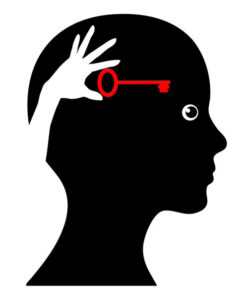The Missing Ingredient in Understanding Depression
None of us were born “depressed,” It is not scientifically, biologically, or humanly possible. Instead, all of us were born happy, which means happiness is innate. The question then is, why do we get depressed? How do we become depressed? And can we prevent depression?
There are several theories of depression. Some more scientifically rigorous than others, all of which give us a window into the mechanism of depression and in to help prevent it. How does that work exactly?
Many think that the answer lies at the root of what causes depression. You look at the causes of depression, prevent them, and with that, prevent depression. Right?
Not really. Despite all our efforts to prevent depression, depression rates continue to increase and it is becoming the number one reason for disability in the world. What does that tell us?
We must be missing something.
As Einstein said, “We cannot solve a problem with the same mind that created it.” Depression is in our minds. Our mind directs our brain, and our brain directs our body. Whether depression comes with general physical, specific neurological, or emotional, manifestations, it originates from the mind. And to treat it or prevent it, we are to look at the mind that created it. What does that mean in practice?
 A full understanding of depression requires a shift from the old way of thinking about it to the new way that Science now explains it. This means appreciating that the essence of depression is the absence of happiness. Yet, if we agree that happiness is innate, then we can begin to understand that that which is innate cannot be absent. Nevertheless, just because something is innate, doesn’t mean we don’t miss it, or forget that it is there.
A full understanding of depression requires a shift from the old way of thinking about it to the new way that Science now explains it. This means appreciating that the essence of depression is the absence of happiness. Yet, if we agree that happiness is innate, then we can begin to understand that that which is innate cannot be absent. Nevertheless, just because something is innate, doesn’t mean we don’t miss it, or forget that it is there.
What can we do to remember that happiness is there and innate in us? Raise our awareness. Particularly our awareness as understood both through the loop of our Natural and Normal Blueprint.
Our full-day webinar on Depression, scheduled for November 13th, 9am-5pm, will be when we deeply unravel that central pillar in the mechanism of depression and learn the most practical ways to use this scientific insight to help decrease suffering for all.
As we often say, it takes an average of 25 years for scientific findings to translate into clinical care. This fact becomes more alarming, given how fast the amount of information provided in our field doubles. This means our patients and clients are more likely to be deprived of essential findings that are required to make the most significant difference in their lives.
SWEET Institute is working with all clinicians to ensure that we all have access to these tools and master the most practical ways to implement them. Will you join us in this challenging yet noble and satisfying journey so we continue to make a difference in the lives of as many individuals as possible?
Thank you for answering the call. We look forward to seeing you at our full-day CEU webinar. Meanwhile, if you are not a member, know that you can have this full-day webinar and all other ones, including our certificate courses, complimentarily by becoming a SWEET Member.
We look forward to continuing to serve together.
See you soon,
Karen and Mardoche









